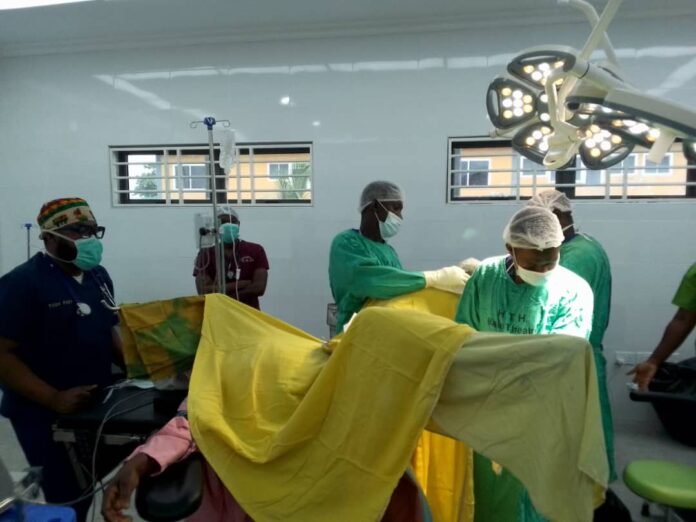In what many are calling a life-restoring breakthrough for maternal health in Ghana, free obstetric fistula surgeries are now being offered across five regional hospitals—signaling a powerful national commitment to restore dignity and hope to thousands of women who have silently suffered the shame and pain of a preventable childbirth injury.
The launch, which coincided with the International Day to End Obstetric Fistula on May 23, was announced by the United Nations Population Fund (UNFPA) Country Representative, Dr. Wilfred Ochan, at the Ho Teaching Hospital.
“This year, we are not just talking about fistula—we are healing it, one woman at a time,” he said.
The designated hospitals providing the free surgeries include:
-
Komfo Anokye Teaching Hospital (Ashanti)
-
Ho Teaching Hospital (Volta)
-
Tamale West Hospital (Northern)
-
Mercy Women Catholic Hospital (Central)
-
Upper West Regional Hospital
A Silent Crisis Finally Addressed
Obstetric fistula, a childbirth injury caused by prolonged or obstructed labour, leaves women incontinent, isolated, and often abandoned by their families and communities. Many lose their babies and are forced to live in shame due to the persistent smell of urine or faeces.
“These are not just patients; they are mothers, wives, daughters—left to suffer in silence,” Dr. Ochan said.
Until now, thousands of women in rural and low-income communities have been unable to access surgery due to cost, stigma, and limited availability. The average cost per surgery—including transportation, medical care, and two weeks of post-operative support—is approximately $700, far beyond the reach of most patients.
National Unity Behind a Life-Changing Campaign
The free surgery campaign is spearheaded by the Partnership to End Fistula in Ghana (PEFIC), a growing coalition launched in December 2023 by former First Lady Rebecca Akufo-Addo. What began with seven partners and $60,000 has now grown into a national movement involving 18 institutional partners.
It is a rare example of successful multi-sectoral collaboration:
-
Fidelity Bank, Access Bank, and AT (formerly AirtelTigo) are contributing financial and logistical support.
-
Qatar Charity is building a dedicated shelter for fistula patients in Yendi.
-
The Ministry of Gender, Children and Social Protection is constructing a state-of-the-art surgical theatre in Tamale.
-
NGOs like MCAM are leading grassroots awareness campaigns.
-
The Ghana Health Service is providing facilities and expert personnel.
-
The World Health Organization (WHO) is ensuring global best practices.
“This is how you change a country—when ministries, hospitals, banks, NGOs, and international partners rally around a single mission: to give women their lives back,” Dr. Ochan declared.
From Stigma to Strength
Behind every surgery is a woman reclaiming her voice. Dr. Ochan emphasized that ending fistula isn’t just about stitching wounds—it’s about mending lives broken by trauma, neglect, and silence.
“These women have been shunned from dinner tables, from beds, from society. Today, Ghana is saying: you matter, and you deserve healing,” he said.
Access Points for Free Surgeries
Women in need of help can now directly contact any of the participating hospitals:
-
Komfo Anokye Teaching Hospital (Kumasi) – 057 020 2800
-
Ho Teaching Hospital (Volta Region) – 027 939 0179
-
Tamale West Hospital (Northern Region) – 027 701 3270
-
Mercy Women Catholic Hospital (Central Region) – 027 523 2127
-
Upper West Regional Hospital – 055 849 6307
Toward a Fistula-Free Ghana by 2030
With 87–88% of births now occurring in health facilities, Ghana has made notable progress in maternal health. Yet, the country continues to grapple with a maternal mortality rate of 310 per 100,000 live births—alongside thousands of debilitating birth complications like fistula.
But the tide is turning.
“Ghana has moved from donor dependence to national ownership of the fight against fistula,” Dr. Ochan said. “This is no longer just an intervention—it is a promise.”
By 2030, Ghana hopes to eliminate obstetric fistula entirely. But for the women who walk into these hospitals with pain and leave with renewed hope, that future has already begun.



